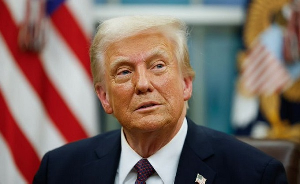Common Purpose Alliance, Ghana (CPAG) followed with interest the recent “Meet the Press” encounter by the Minister for Water Resources.
We are very surprised however at the Minister’s intention to create yet another agency, the National Sanitation Authority to “ensure compliance to sanitation rules and regulations”, and see to the recruitment of a National Sanitation Brigade.
CPAG has always advocated for the strengthening of existing structures of government and a thorough application of laws and regulations governing every sector of our economy. There is already sufficient legislation and by laws made by MMDA’s and other similar agencies such as the EPA, and the GTA, enforceable by the police and the courts to ensure compliance.
It is imperative that the roles of the judiciary and law enforcement agencies are critical in militating our sanitation menace. We insist that existing laws are enforced and punitive sanctions applied to offenders through an expeditious judicial system to deter other potential culprits.
Based on the above we believe the creation of the National Sanitation Authority and a Sanitation Brigade is a totally unnecessary duplication that will drain resources and more importantly remove local control of a localised problem. That yet another “Authority” will give another opportunity of “jobs for the boys” is not lost on us either!
We strongly advocate for a decentralized system with the mandate given to the MMDAs to ensure compliance to our sanitation laws. Other institutions such as the environmental protection agencies should be equipped with the right resources and given a target and timelines to work within.
CPAG also calls for a private sector participation vigorously monitored by the public sector especially MMDAs as envisioned by the National Sanitation Policy 2010 ( revised) to contribute in curbing this menace.
Ghana’s official Environmental Sanitation Policy, revised (2010) envisions clear and comprehensive objectives, actions and measures that will respond to our sanitation needs by encouraging private sector participation.
Objective (iii) states: “To developed capacity of the sector for effective facilitation of MMDAs and private sector for the provisions of environmental services.
We hold variant views with respect to the creation of the proposed National Sanitation Authority which might end up being not productive. We herein draw the attention of the Ministry of Water resources and sanitation to objective (IV) of the 2010 National sanitation policy:
“To ensure transfer of adequate resources to MMDAs for environmental sanitation functions.”
• Appoint appropriately qualified staff to MMDAs including, sanitary engineers, environmental health technologists, planners etc
• Provide logistics and appropriate working tools for management of environmental sanitation services.
We wish to remind the ministry that the National Sanitation Policy 2010 (revised) entrusts the Metropolitan, Municipal and District Assemblies with five distinct functions with respect to environmental sanitation which includes
• WASTEMANAGEMENT, • PUBLIC HEALTH MANAGEMENT, • ENVIRONMENTAL MONITORING, • PROVISION OF WORKS RELATED TO ENVIRONMENTAL SANITATION FACILITIES • PLANNING, MONITORING AND PUBLIC RELATIONS
We therefore demand that per the direction of the Environmental Sanitation Policy 2010 (revised) the Ministry put in place the following measures:
1. Establish an institutional framework with clearly defined roles and linkages to support implementation of the policy
2. Establish technical capacity within the ministry of local government and Rural Development (MLGRD) to orient and support the District Assemblies in the provision of environmental sanitation services.
3. Developed skilled professional and sub- professional manpower for the sector
4. Legislation: Modernize, strengthen and enforce environmental sanitation legislation.
5. Develop capacity in Assemblies to manage environmental sanitation
6. Strengthen community’s role in environmental sanitation
7. Increase private sector participation in environmental sanitation service delivery, and whenever possible, recover cost directly from service beneficiaries
8. Develop clean and appropriate technical systems and promote research into technologies
Common purpose Alliance, Ghana affirms that these policy directions envisioned by the 2010 sanitation Policy encapsulate all the solutions in salvaging the Nation from the current sanitation crisis. The Ministry should rather contemplate a coordination between the existing agencies with clearly defined roles which when vigorously implemented will reduce the problem of sanitation.
Signed:
Abraham Awuriki Yeboah
Executive secretary
CPAG Directorate
0554928193 or 0246570303
Opinions of Monday, 28 August 2017
Columnist: Abraham Awuriki Yeboah
National Sanitation policy should be enforced
Entertainment














